Introduction: The Role of Databases in Modern Business Solutions
Databases play a crucial role in today’s businesses, enabling them to manage large amounts of data efficiently. When a database is integrated with custom software, it becomes even more powerful, allowing businesses to tailor data handling to their specific needs. Understanding the advantages of a database is key to improving productivity and efficiency. As the core of a custom software system, databases centralise data, making it easily accessible across different devices, platforms, and applications. This means that no matter where you are or what tool you’re using, you can quickly find the information you need to make informed decisions.
Understanding the Basics: What is a Database and Why Does it Matter?
Before we explore the advantages of a database, let’s clarify what a database is.
What is Data?
Data is any piece of information that can be recorded, such as numbers, text, dates, or even images. For businesses, data might include customer details, sales figures, inventory levels, or market trends. Managing this data properly is essential for making good business decisions.
What is a Database?
A database is a structured collection of data that makes it easy to store, access, and manage information. Think of it as a digital filing system that keeps all your important data organised, so you can find what you need quickly and accurately.
Relevance in Business
Businesses use databases to organise their information, reducing errors and streamlining everyday operations. With well-organised data, companies can make better strategic decisions, respond to market changes faster, and improve overall efficiency. For example, Customer Relationship Management (CRM) systems and Enterprise Resource Planning (ERP) software rely on databases to manage customer information, sales data, and inventory.
Custom Software Connection
Custom software and databases work well together because both can be tailored to a business’s specific needs. By harnessing the advantages of a database, custom software can be designed to fit perfectly with the company’s requirements. This customised approach ensures the database handles unique data needs efficiently, making operations smoother and more effective.
For example, in a manufacturing company, custom software can track production schedules and manage inventory, while the database stores details about materials and suppliers. This integration streamlines processes, reduces delays, and ensures materials are available when needed, boosting productivity.
Key Advantages of a Database in Custom Software Solutions

Enhanced Data Security
Databases come with strong protection measures, such as encryption and user authentication, to keep your data safe. Custom software can add even more security features, ensuring that sensitive information remains protected from unauthorised access.
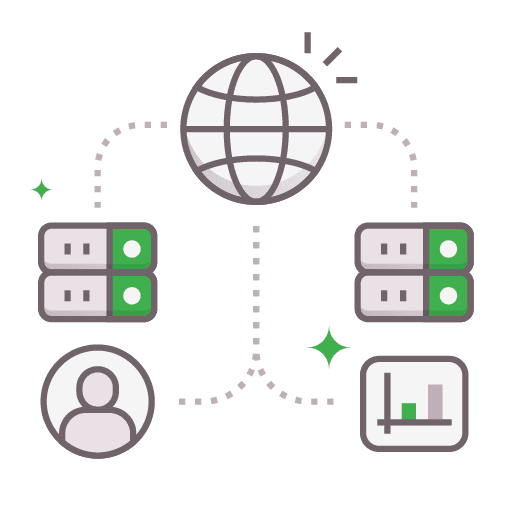
Improved Data Organisation and Consistency
Databases enable quick retrieval of information, which supports faster decision-making. Custom software solutions can offer intuitive dashboards that present the information you need at a glance, making it easier for businesses to respond quickly to changes.
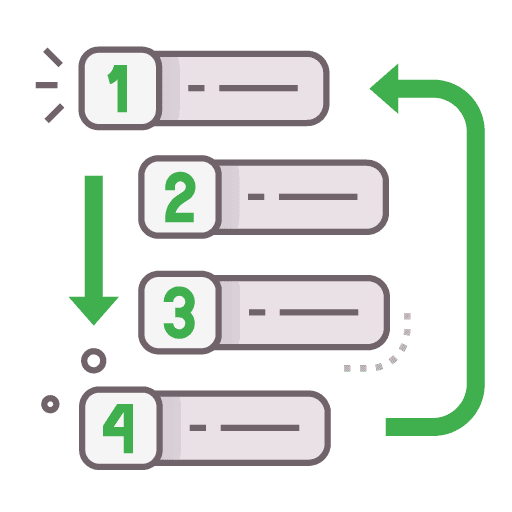
Faster Data Access and Decision-Making
Databases enable quick retrieval of information, which supports faster decision-making. Custom software solutions can offer intuitive dashboards that present the information you need at a glance, making it easier for businesses to respond quickly to changes.
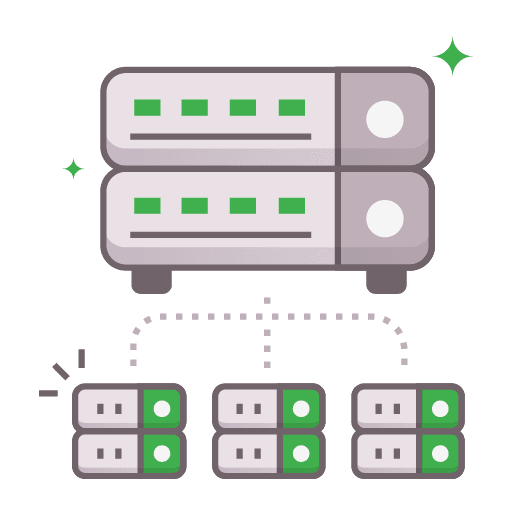
Scalability to Meet Business Growth
As a business expands, databases can grow with it, handling increased amounts of data without losing performance. Custom software also scales ensuring that these systems adapt smoothly to meet your evolving business needs.
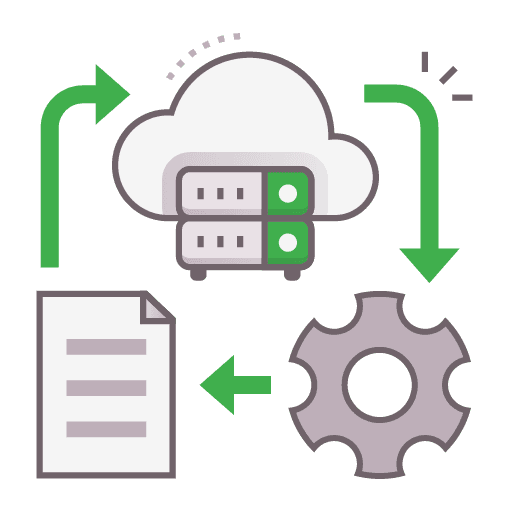
Reduced Data Redundancy
Databases help prevent the duplication of data, saving storage space and improving accuracy. Custom solutions streamline these processes even further, enhancing overall data efficiency and making sure your information is reliable and organised.
Why Choose BSPOKE Software for Your Custom Software Project?
When it comes to choosing a partner for your custom software project, BSPOKE Software stands out with over 15 years of experience in developing tailored desktop, mobile, and web software solutions. Our team of software consultants collaborates closely with clients to create detailed project plans that reflect their unique business needs, ensuring that every aspect of the software is designed specifically for them. One of our key strengths is our approach of implementing a central database for all our projects. This centralisation enhances data accessibility and streamlines operations across various platforms, making it easier for businesses to manage their information efficiently.
We believe we are the ideal partner for your project because of our extensive expertise in the custom software industry. We are dedicated to optimising your database to support your company’s growth and improve operational efficiency, helping you make the most of your data.
If you’re ready to take the next step, contact BSPOKE Software today to discuss how we can assist you in leveraging the advantages of a database in your upcoming custom software project.
BSPOKE Software Examples of Custom Software with a Central Database
To illustrate our success, we invite you to explore three case studies that highlight how our tailored solutions have transformed businesses by harnessing the power of central databases.
Workplace Risk Management (Web Portal)
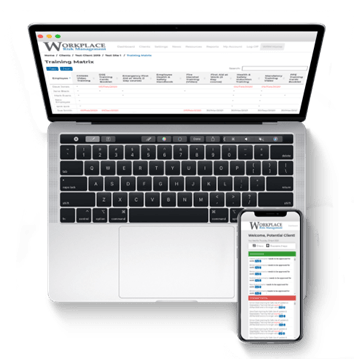
Workplace Risk Management (WRM) needed a custom web application to help businesses meet health and safety regulations. They required a system to track compliance, report accidents, and monitor training. We developed a solution that includes a central database to store all their data, allowing easy access from any device. This central database benefits WRM by ensuring that all information is accurate and up-to-date, which helps businesses stay compliant with regulations more effectively. You can find out more about WRM’s software solution on this page.
Sweet Causes (Desktop and Mobile Apps)
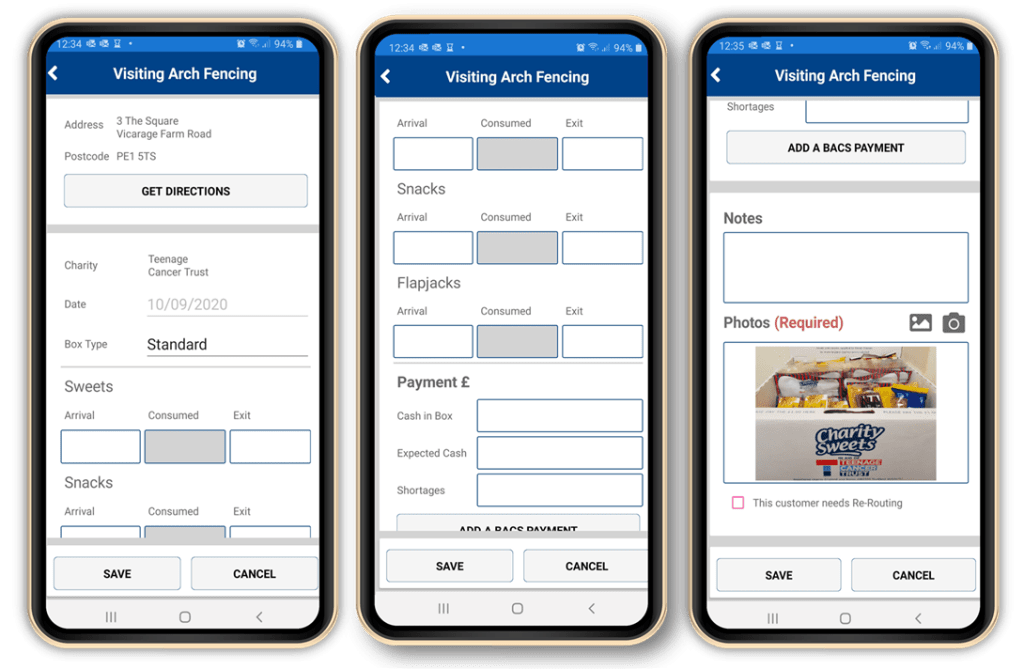
Sweet Causes, a UK confectionery company, aimed to boost efficiency, accuracy, and productivity. They moved from Excel spreadsheets to a custom software solution with a central database, accessible from both desktop and mobile. This database acts as a single source of truth, ensuring everyone in the company uses the same accurate information, streamlining processes, and reducing errors. To see how we transformed Sweet Causes operations, read the full case study
Amjutan (Desktop and Mobile Apps)
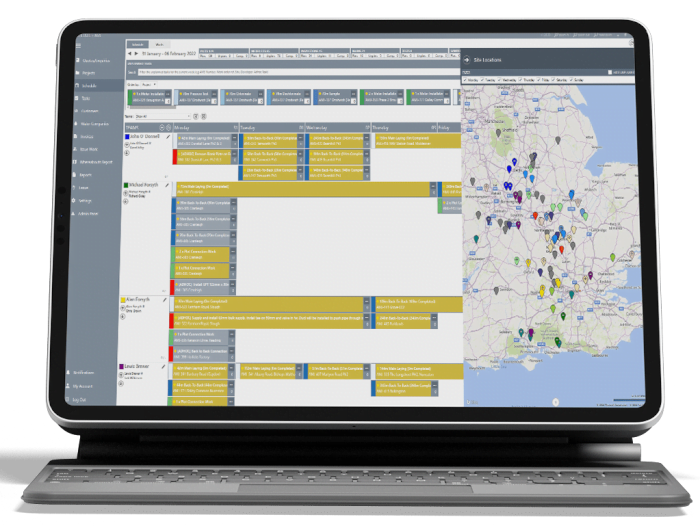
Amjutan, a UK company that focuses on water supply, needed a custom software system because standard options didn’t meet their needs. We created a solution that fits their requirements perfectly, featuring a central database that stores all their data. This ensures that information is easily accessible and well-organised across their desktop and tablet applications. One key advantage of this central database is that it allows Amjutan to quickly retrieve and update information. Watch Amjutan’s director talk about the software we developed for them, on this page.
Exploring Different Types of Databases for Custom Software
When developing custom software, it’s important to consider the different types of databases available. Cloud databases, relational databases (RDBMS), and NoSQL databases can overlap in functionality, but they have some key differences in how they operate and where they are stored.
- Relational Databases (RDBMS): These are used for handling structured data, organised into tables with rows and columns. They follow a strict schema, which means the data must fit into a predefined format. Examples include MySQL and SQL Server. They’re commonly used in traditional business applications where data consistency is important.
- NoSQL Databases: NoSQL databases are designed to handle unstructured or semi-structured data. They are more flexible in how data is stored and accessed compared to relational databases. This makes them ideal for modern, agile businesses that need to adapt quickly to changes. Examples include MongoDB and Cassandra. They don’t require a fixed schema, which allows for more adaptable data models.
- Cloud Databases: Cloud databases are more about where the data is stored rather than how it is structured. Both relational databases and NoSQL databases can be stored in the cloud. The main advantage of a cloud database is that it offers scalability, remote access, and the ability to grow with the business. Being stored in the cloud means the database is accessible from anywhere, making it easier for teams to collaborate.
In summary, cloud databases are not a separate type of database but rather a way to store and access existing types like relational and NoSQL databases using cloud technology. They combine the benefits of scalable storage with the specific advantages of either relational or NoSQL databases, depending on the business needs.
Cost-Effectiveness of Using Databases in Custom Software
Using databases in custom software can be a smart choice for businesses when it comes to costs. At first, setting up a database may seem expensive due to initial investment costs. However, these costs are often outweighed by long-term savings. By automating tasks and reducing the need for manual data entry, businesses can save time and money. This improvement in operational efficiency means fewer mistakes and less wasted effort, leading to overall cost savings.
A cost-effective way to develop custom software is to start with a core system and gradually add features as your needs grow. This approach allows you to expand the database at the same time, ensuring it evolves alongside your business. By scaling the software and database together, you avoid the need for a large upfront investment and make it easier to adapt to new requirements as your business develops.
When custom software integrates cloud-based databases, the benefits become even clearer. Cloud databases lower expenses related to data storage because they allow businesses to pay only for what they use. This flexibility helps to manage costs better as the business grows. Additionally, cloud databases simplify operations by making it easier to access and manage data from anywhere. This means businesses can focus on their core activities instead of worrying about costly infrastructure or maintenance. Overall, using databases in custom software not only helps save money but also enhances productivity and efficiency.
FAQ: Understanding Databases with Custom Software
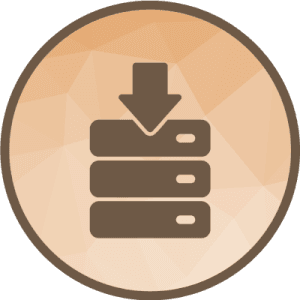
How does a central database benefit my business?
A central database stores all your data in one place, making it easier to access and manage. This helps reduce errors, ensures everyone is using the same information, and supports better decision-making.
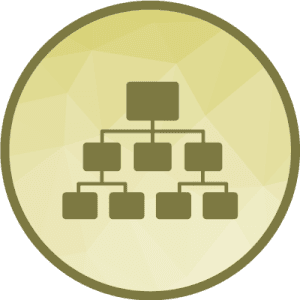
Which industries can take advantage of a database with custom software?
Many industries can benefit from a database, including healthcare, finance, retail, education, and manufacturing. Any business that deals with large amounts of data can gain advantages from implementing a database.

How do I know if my business needs a custom software solution with a database?
If your business is struggling with data management, experiencing frequent errors, or needing to access information quickly, a custom software solution with a database may be the right choice. It can help streamline your processes and improve efficiency.

What types of databases can I use with custom software?
You can use several types of databases, such as relational databases (RDBMS), NoSQL databases for unstructured data, and cloud databases for remote access and scalability. The best option depends on your specific needs and the nature of your data.

How secure is the data stored in a database?
Databases offer robust security features, such as encryption and user authentication, to protect your data. Custom software can further enhance these security measures, ensuring your information remains safe. By adding fine-grained permissions, we can allow some users to modify the data while others can only view it, giving you full control over who can access and change your information.

How can I migrate data from my existing legacy system to a new database?
Migrating data from an existing legacy system to a new database can be done smoothly with the right approach. At BSPOKE Software, we can transfer your data securely and efficiently, ensuring that your new custom software system works seamlessly with your existing data. We carefully map your old data to the new system, making sure everything is organised and fits perfectly into your updated database.
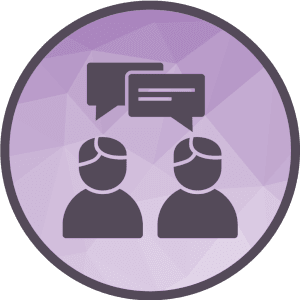
How can I get started with a custom software project that includes a database?
To get started, simply contact us at BSPOKE Software. Our experienced team will discuss your business needs and help create a tailored solution that leverages the advantages of a database to improve your operations.
Maximising the Advantages of a Database with Custom Software
In conclusion, using a database with custom software brings many benefits. These include better data security, the ability to grow with your business, and improved efficiency in managing your information. It also plays a key role in digital transformation, helping businesses move away from outdated processes to more modern, tech-driven solutions. This shift not only makes daily operations smoother but also sets the foundation for future growth and innovation.
At BSPOKE Software, we believe that combining custom software with a strong database can change the way your business handles data. This integration can lead to greater growth and innovation.
Are you ready to improve your data management? Get in touch with BSPOKE Software today to find out how we can create a custom software solution that fits your specific business needs.

